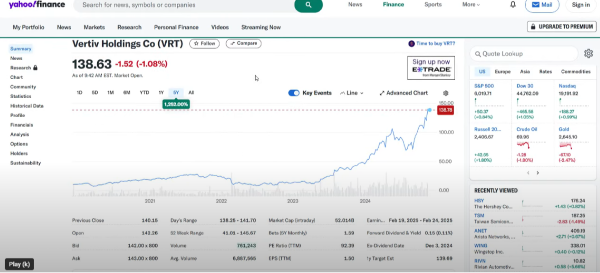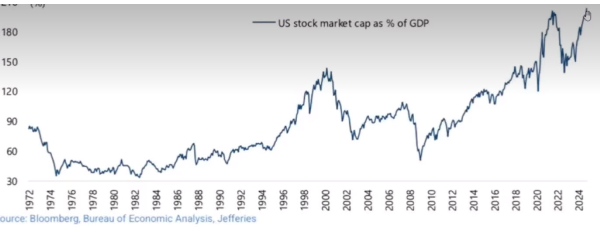Sirius XM: Analyzing Buffett's Investment and the Company's Future Prospects
https://youtu.be/iL5_zy2PCsA?si=o6hBrkuhbkNziU2-
Buffett's Investment in Sirius XM
One of the latest additions to Warren Buffett's portfolio is Sirius XM (ticker symbol SIRI). Recently, Buffett increased his stake in the company by 12 million shares, bringing the total investment to over $2.8 billion, which now constitutes just over 1% of his overall portfolio. This move has generated a lot of buzz in the financial community.
Recent Stock Performance
Unfortunately, much of the recent attention on Sirius XM is due to the stock's significant decline. Over the past decade, the stock has seen a negative performance, losing about 70% of its value from its peak. This sharp drop has left the stock with a very low valuation based on various metrics, while also increasing the dividend yield to over 4%. While this might seem attractive, it raises concerns about the company's long-term stability.
Business Overview and Challenges
Sirius XM is a well-known name in satellite radio, especially after the 2008 merger of Sirius and XM Radio, followed by the acquisition of Pandora. This merger aimed to create an entertainment powerhouse. At its peak, Pandora was a popular music streaming service, and Sirius XM offered premium radio services often bundled with infotainment systems in new cars.
However, the market landscape has drastically shifted towards online streaming giants like Spotify, Apple Music, YouTube Music, Amazon Music, and Tencent Music. These companies, being some of the largest in the world, can afford to subsidize their streaming services to capture market share. As a result, Sirius XM has struggled to compete.
Subscriber Numbers and Financial Performance
While Spotify boasts over 250 million subscribers, with other streaming services around 100 million, Sirius XM has about 40 million paid subscribers, including Pandora. The decline in Pandora's subscriber base has also contributed to Sirius XM's financial struggles. The company has experienced three years of slight revenue declines and flat profitability. Last quarter, their free cash flow plummeted by over 60%, likely due to recent restructuring efforts with Liberty Media.
Competition and Market Position
The intense competition from online streaming services makes it challenging for Sirius XM to maintain its market position. The company's future remains uncertain due to this massive competition and the overall shift in consumer preferences towards online streaming platforms.
Conclusion
In conclusion, while Warren Buffett's investment in Sirius XM has garnered attention, the company's recent stock performance and market challenges raise concerns about its long-term prospects. The significant decline in stock value, coupled with fierce competition from online streaming giants, makes it difficult to predict where Sirius XM will end up in the future. As a result, the stock ranks lower in terms of confidence compared to other businesses.





















Sirius XM: Analyzing Buffett's Investment and the Company's Future Prospects
https://youtu.be/iL5_zy2PCsA?si=o6hBrkuhbkNziU2-
Buffett's Investment in Sirius XM
One of the latest additions to Warren Buffett's portfolio is Sirius XM (ticker symbol SIRI). Recently, Buffett increased his stake in the company by 12 million shares, bringing the total investment to over $2.8 billion, which now constitutes just over 1% of his overall portfolio. This move has generated a lot of buzz in the financial community.
Recent Stock Performance
Unfortunately, much of the recent attention on Sirius XM is due to the stock's significant decline. Over the past decade, the stock has seen a negative performance, losing about 70% of its value from its peak. This sharp drop has left the stock with a very low valuation based on various metrics, while also increasing the dividend yield to over 4%. While this might seem attractive, it raises concerns about the company's long-term stability.
Business Overview and Challenges
Sirius XM is a well-known name in satellite radio, especially after the 2008 merger of Sirius and XM Radio, followed by the acquisition of Pandora. This merger aimed to create an entertainment powerhouse. At its peak, Pandora was a popular music streaming service, and Sirius XM offered premium radio services often bundled with infotainment systems in new cars.
However, the market landscape has drastically shifted towards online streaming giants like Spotify, Apple Music, YouTube Music, Amazon Music, and Tencent Music. These companies, being some of the largest in the world, can afford to subsidize their streaming services to capture market share. As a result, Sirius XM has struggled to compete.
Subscriber Numbers and Financial Performance
While Spotify boasts over 250 million subscribers, with other streaming services around 100 million, Sirius XM has about 40 million paid subscribers, including Pandora. The decline in Pandora's subscriber base has also contributed to Sirius XM's financial struggles. The company has experienced three years of slight revenue declines and flat profitability. Last quarter, their free cash flow plummeted by over 60%, likely due to recent restructuring efforts with Liberty Media.
Competition and Market Position
The intense competition from online streaming services makes it challenging for Sirius XM to maintain its market position. The company's future remains uncertain due to this massive competition and the overall shift in consumer preferences towards online streaming platforms.
Conclusion
In conclusion, while Warren Buffett's investment in Sirius XM has garnered attention, the company's recent stock performance and market challenges raise concerns about its long-term prospects. The significant decline in stock value, coupled with fierce competition from online streaming giants, makes it difficult to predict where Sirius XM will end up in the future. As a result, the stock ranks lower in terms of confidence compared to other businesses.